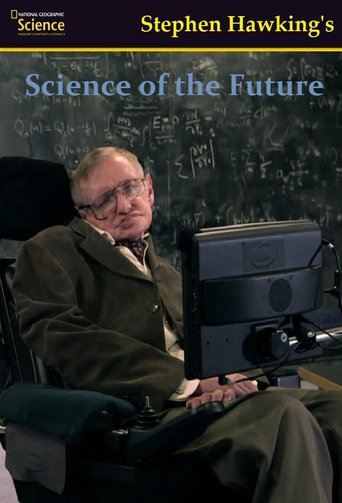RISING Season 5
With 30 Day Free Trial!
RISING
2015
Going beyond the horizon. Meet Japan's entrepreneurs whose innovative thinking is changing traditional mindsets in their various fields of work.
Watch Trailer
RISING Season 5 Full Episode Guide
In the world of para-sports, advances in prosthetic technology have brought leaps in performance for athletes. But with the global market dominated by models from Germany and Iceland, one Japanese maker is creating athletic blades to match the smaller Asian physique. In close collaboration with top para-athletes, Atsushi Hamada is working on groundbreaking designs that he hopes can earn success at the Tokyo 2020.
Lina Sakai is the mind behind a new bioethanol-based resource cycle that is revitalizing regional economies. In Iwate Prefecture, rice from once fallow fields is fermented to produce ethanol, which is used to create premium cosmetics. Post-fermentation grains are fed to local hens, improving the quality of their eggs. The model is also being applied to apples and millet grains, as Sakai works to promote regional revitalization through local production and consumption.
As Japan's society rapidly ages, rehabilitative care for seniors who cannot walk or stand unaided is a vital part of the country's care provision. With a background in nursing care, Kenta Toshima, a researcher at the prestigious University of Tokyo, uses VR technology to recreate world-famous tourist spots and childhood haunts as environments to get elderly patients moving and talking, with lasting benefits in both departments. Follow a pioneer breaking new ground in elder care technology.
Over 40% of Japan is covered with woodland. But in recent years, cheap foreign imports have seen a decline in Japan's timber industry, with the resulting lack of resources and personnel required for forest management also leading to landslides and other issues. Hiroyuki Nakamura is revolutionizing forestry through ICT, using laser scanners and 3D modeling to identify the most suitable timber and project the growth of younger saplings after thinning. We follow a pioneer of future forestry.
Agricultural science PhD Yukihiro Maru is head of a unique business striving to raise the floor for science and technology in Japan, through both educational workshops and support for science-based startups. Staffed by science graduates and postgrads, the firm conducts around 300 workshops each year aimed at boosting interest in STEM subjects among kids and teens, and has also helped kickstart over 200 tech ventures. Follow their efforts to save the world through the power of science.
A Kyoto Prefecture umbrella maker with 160 years of history drove to the brink of bankruptcy in 2003, falling demand for traditional Wagasa paper umbrellas. Son-in-law Kotaro Nishibori left his job as a civil servant to take over the helm, with the motto "true tradition always moves with the times." Since then, lampshades and other products leveraging Wagasa making techniques have won fans at home and abroad, and brought collaborations with international designers.
In Japan, crowdfunding isn't just about money. There's also a site aimed at test marketing new products which has built up an impressive track record. CEO Ryotaro Nakayama finds the ideas slumbering within local small and medium-sized businesses and helps turn them into new products, putting declining industries back into action. From projects like a foldable hybrid bicycle to kitchen knives modeled after Japanese katana swords, we take a deep dive into Nakayama's revolutionary business model.
Across Japan, aging and depopulation see over 8 million properties currently standing unused. One town at the forefront of this issue is Mino, Gifu Prefecture. Once known for some 4,700 traditional mills making UNESCO-recognized washi paper, now only 6 remain. Takeshi Fujiwara launched a plan to re-activate Mino's empty buildings as resources for culture and tourism. Follow his efforts to revive this community by promoting local crafts and transforming empty homes into unique guesthouses.
In Japan, blemishes and inconsistencies in size or shape see some 20-30% of vegetables rejected as unfit for sale. Keisuke Soda had an idea to spare producers the heartache of scrapping perfectly good crops: He buys such items at a fair price, and presses their pulp into colorful, paper thin-sheets which store well and can be used as you would dried seaweed. Learn how a product originally intended to help regional farmers is now taking off among vegans and mothers of young children alike.
At the 2019 Consumer Electronics Show in Las Vegas, USA, top plaudits went to a wearable ultrasound sensor that provides users with mobile notifications of bladder fullness. Based on the personal experience of developer Atsushi Nakanishi, the device aims to help an estimated 500 million people worldwide who suffer from urinary incontinence. And this groundbreaking tool is already improving quality of life for both staff and patients in care and rehabilitation settings in Japan and overseas.
Fujio Kojima leads a company using IT to tackle waste, from litter to fly-tipping and ocean plastics. A unique social media app that encourages users to pick up litter and share their activities, has been a hit with private users and companies alike in 84 countries. The firm has also developed an AI system that scans the streets for garbage, and launched a project surveying plastic waste in rivers and outlets around Japan. Follow a unique business trying to solve the world's garbage problems.
The global boom in wearable technology has seen one traditional Japanese textile maker is in the spotlight with smartphone-linked garments that monitor wearers' heart rate and other data, with applications in sports, healthcare, and industry. Since taking over the family business in 2014, CEO Ayumu Mitera has revived the ailing firm's fortunes through world-leading silver metalized fibers. Find out more about the benefits these unique textiles are bringing to the elderly, epileptics, and more.
The global drive to cut fossil fuel usage has put electric vehicles (EVs) in the spotlight. Spurred by the aftermath of the Great East Japan Earthquake and tsunami of March 2011, engineer Hideo Tsurumaki created a compact EV that is equally at home on land or water. Despite being only 1.3 meters wide, his aquatic car can seat 4 people, and reach top land speeds of 80km an hour. We follow this pioneer of affordable EVs as he expands his operations to frequently flood-affected Thailand.
With over 27% of the population currently aged 65 or over, Japan as a nation is experiencing unprecedented demand for assistive technology. Hideaki Tamada heads one Osaka-based firm that developed walking aids tailored to the smaller physiques of Japanese seniors. A runaway hit, the firm now leads the domestic "walker" market, helping older adults nationwide to maintain their independence. Follow a pioneering business prolonging healthy lifespans for Japan's graying society.
Flying cars have long been a staple of science fiction, but recent years have seen a global explosion in projects that aim to make these futuristic vehicles a reality. With the aim of making flight available to all by 2050, one such project is led by Tsubasa Nakamura, whose team of young engineers is working to create a zero-emission road vehicle that can also take to the air via propeller power. Follow their efforts to have their invention light the Olympic Flame at Tokyo 2020.
In Japan, long-distance express coaches are a fast-expanding sector. Including an increasing number of foreign visitors, annual users now stand at an estimated 120 million. Koji Hirayama runs a coach operator that has helped fuel this growth through an emphasis on safety, comfort, and value, introducing measures like IoT systems to monitor drivers' health and stop them falling asleep at the wheel; specially designed seats; and a system that makes unreserved places available at reduced prices.
Free Trial Channels
Seasons














































